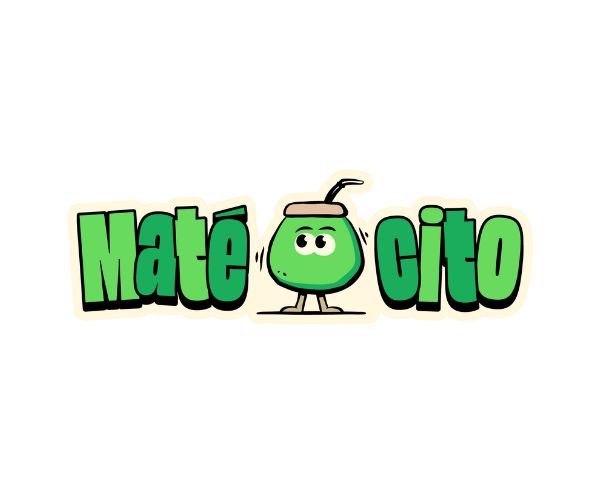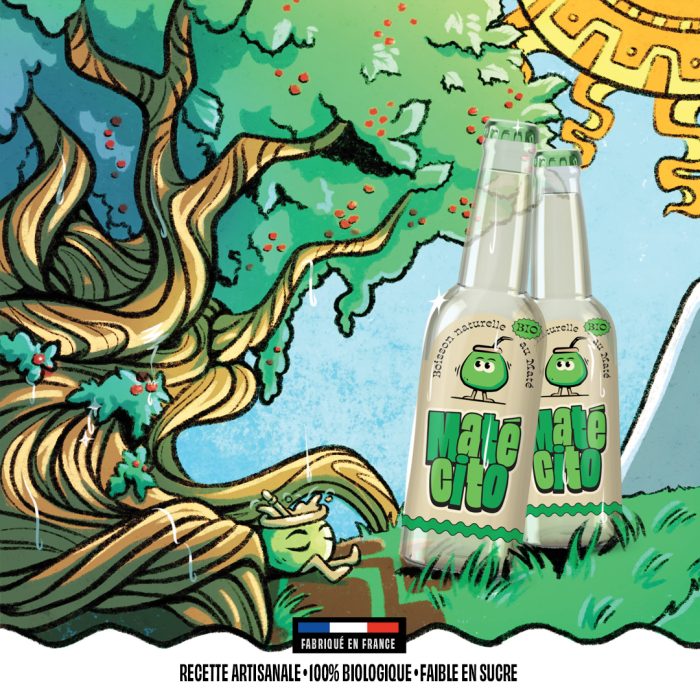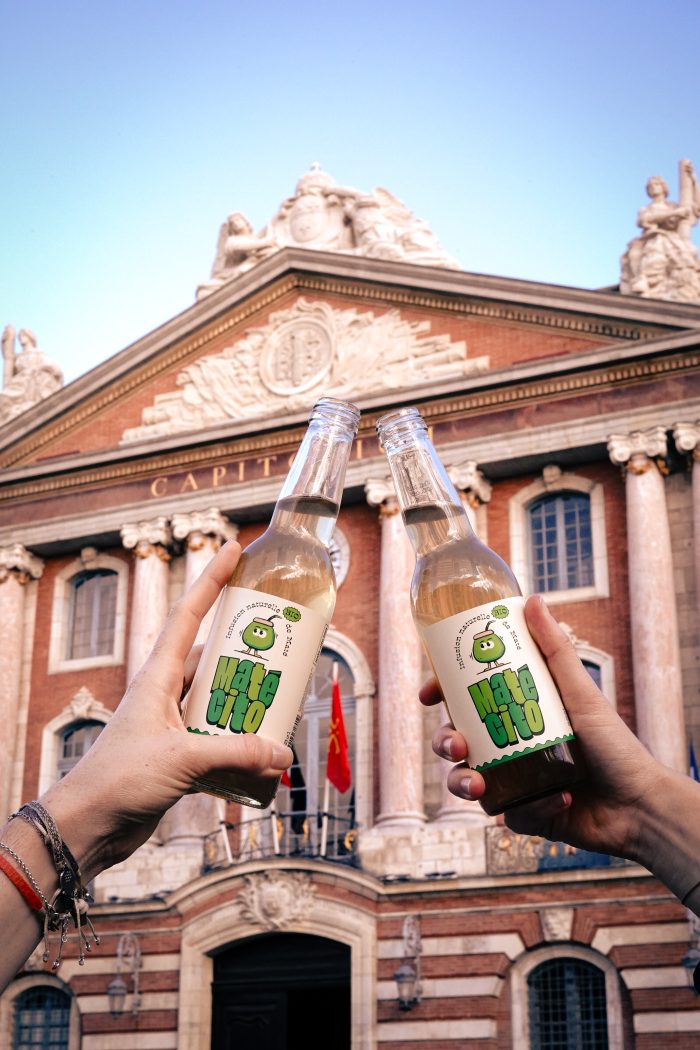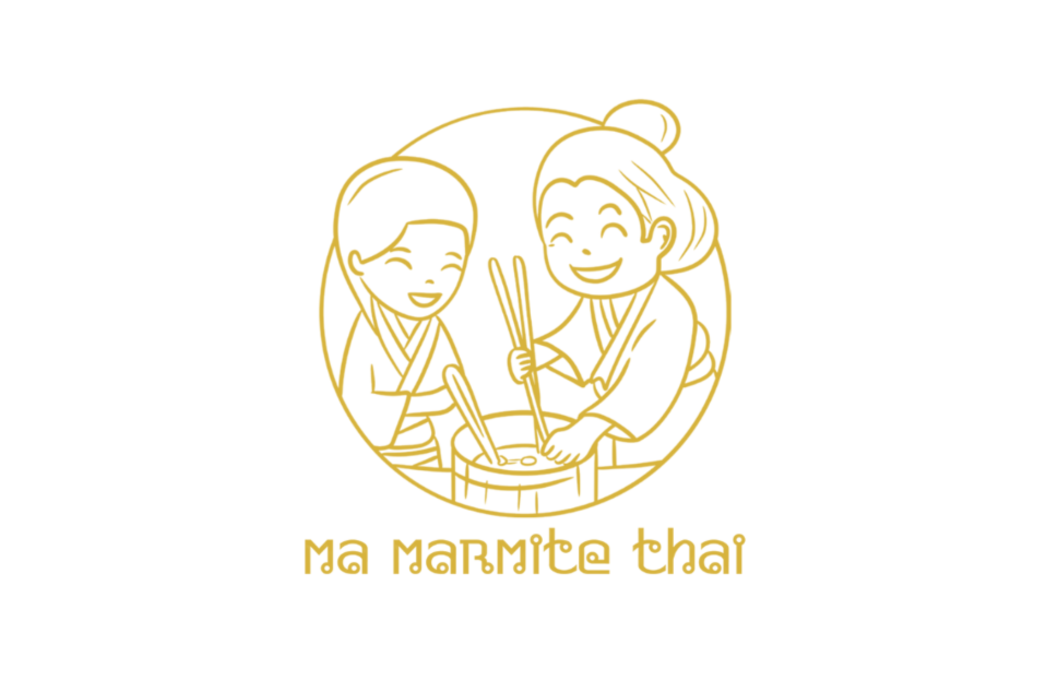Customer testimonials
Optimization of the recipe and pasteurization process of the mate drink Matécito: the CTCPA accompanies France Maté
20
Jan

Published on : 20/01/2023
The CTCPA accompanied FRANCE MATE in the optimization of the recipe and the pasteurization process of its mate-based drink: Matécito. Return with Carla BUISSON, in charge of the project, on the activity of France Maté and our support.

"There was a real cohesion between the Microbiology Department and the Technology Department of the CTCPA. We felt we were listened to and accompanied as best we could in the development of a more than satisfactory pasteurization protocol!"
"The human side that the CTCPA keeps, which we tend to lose during business relationships, gives meaning to the collaboration."
How were born France Maté and Matécito ?
During the confinement, Kévin Armengaud* was noticed and approached by the artists Bigflo and Oli who told him about their desire to create and market a non-alcoholic drink based on mate. This drink had to meet several requirements:
- To please the taste. Mate has a strong taste and the European palate is not used to it. The recipe had to be tasty without spoiling the mate.
- To seduce a young target as well as the thirty-somethings and more. We have worked on a brand identity in this sense.
- Recalling South American traditions. Bigflo and Oli have a father of Argentinean origin. They have always been immersed in South American culture and they are very attached to the tradition of mate. Indeed, the tradition consists in turning the calabash filled with mate so that everyone can drink counterclockwise, as if to delay time.
After several months of work, our first product was born: Matécito! We started to market it in September 2022 during the Rose Festival in Toulouse.
At France Maté, we have the will to emphasize the maté, to sublimate it and to develop our brand beyond the first recipe called "Matécito Original" on sale today.
*Kevin Armengaud is the founder of Biomate who received the 2nd prize at Natexpo 2021 for his creation "Pop Caramel".
Tell us about Matécito !

Matécito is a refreshing non-carbonated drink made from organic mate leaves, natural pomegranate flavor, an assortment of organic fruit infusions (goji berries, coconut...), organic agave syrup and organic lemon juice. We worked for a year and a half to find the perfect balance between mate and the other ingredients.
Our recipe is 100% made in France, 100% ORGANIC and vegan, without refined sugar, gluten and lactose free.
You can find Matécito on our e-commerce site: Matécito - the organic and natural mate and fruit drink (mate-cito.com)The company's products are available in the Toulouse region, particularly in restaurants and grocery stores, and are gradually being rolled out across the country.
What are the benefits of mate?
The mate contains a set of active ingredients which contributes to stimulate the body durably. In short, an infusion of mate allows you to fill up on vitamins (A, B1, B2, B5, C and E), tannins, mateine (the equivalent of caffeine), minerals and trace elements (iron, phosphorus, magnesium, potassium). To know more about it: WHAT IS MATTE (mate-cito.com)
Why did you work with the CTCPA?
At the beginning of our project, we worked for a year and a half with a laboratory to find the perfect recipe. When it came time to test the recipe in larger volumes with a packager, we had major organoleptic concerns: the taste was much too strong. We therefore had to completely rework the recipe with the packager! However, three weeks after production, the drinks were not microbiologically stable.
Our production partner, with whom we were testing a pasteurization tunnel, recommended the CTCPA as a expert technical center for heat treatments (Note DGAl).
How did the CTCPA accompany France Maté?
First, we contacted Stella PLANCHON, microbiology project manager, to understand what was going on. Then Vincent MORET, technology project manager at CTCPA Auch, took over to set up the most adapted pasteurization protocol.
How did the CTCPA accompany France Maté and what did you think of it?
At first, we had contact with Stella PLANCHON, microbiology project leader (PhD), to understand what was happening, i.e. to identify the micro-organism(s) responsible for the alteration of the drink and the origin of the contamination. Then Vincent MORET, technology project manager at CTCPA Auch, took over to set up the most adapted pasteurization protocol.
We were very satisfied with the support of the CTCPA. There was a real cohesion between the Microbiology department in Avignon and the Technology department in Auch. Indeed, they put in common their knowledge of the product to identify the problem, its origin and how to control it. We asked the CTCPA for help with a short deadline because we had to respect our release date. We were delighted with the responsiveness of the teams. We felt we were listened to and accompanied as well as possible in the development of a more than satisfactory pasteurization protocol!
Another particularly pleasant point with the CTCPA is that after the production, we always have a more or less distant accompaniment to know how the product behaves. The human side that the CTCPA keeps, which we tend to lose in business relationships, gives meaning to the collaboration.
Today, we continue to solicit Vincent MORET for future projects... To be continued!
__
CONTACT FRANCE MATE :
- Carla BUISSON - carlabuisson@francemate.fr
- Website - Facebook - Instagram - Tiktok
CONTACT CTCPA :
- CTCPA Auch : auch@ctcpa.org
- Vincent MORET : vmoret@ctcpa.org
__
The development of food products, processes and packaging is at the heart of our DNA. As a technical center, our mission is to identify, test and advise on innovations processes, products, ingredients, packaging for a organoleptic experience, and health of your consumers. You have a project? Please contact us!






